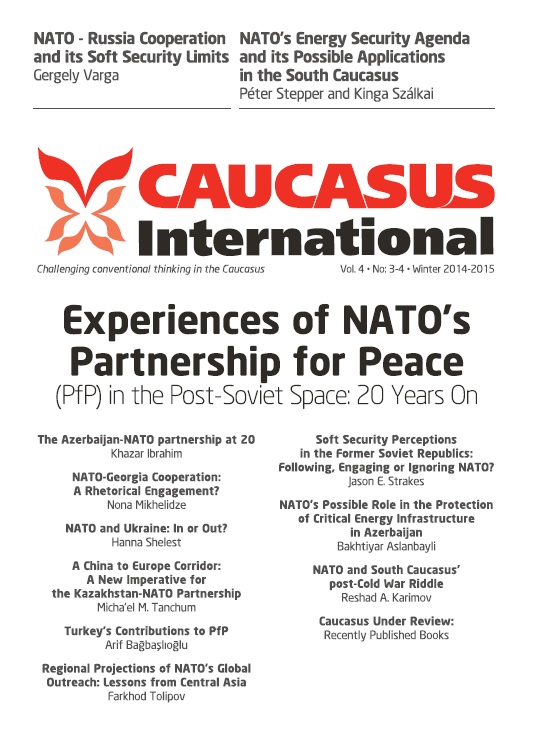NATO-Georgia Cooperation: A Rhetorical Engagement?
In 2008, NATO officially embraced Georgia’s Euro-Atlantic aspirations, declaring that one day the country would become a member of the alliance. Almost six years on, most policymakers - on both sides - agree that membership depends not on Geor - gia’s political domain or security options, but rather on the geopolitical struggle be - tween the major powers in the post-Soviet space, and most of all on the challenging NATO-Russia relationship. Kosovo’s declaration of independence and the Bucharest Summit in 2008, at which Georgia was promised that it would one day gain member - ship, exacerbated the already complicated relations between Russia and the West. Both events were perceived by the Kremlin as a threat to Russia’s strategic inter - ests. Moreover, from Russia’s perspective, both required a response. Russia’s security dilemma culminated in August 2008 with the invasion of Georgia. This war led to the suspension of talks on Georgia’s eventual NATO membership. Furthermore, the events in Ukraine, the financial crisis in Europe and U.S. policy in the Middle East and towards Iran have made it necessary to decelerate the Georgian NATO membership process. For now, NATO cannot compete with the Russian influence in the region. Consequently, it will pursue only a limited role in Georgia and in the South Caucasus more generally, keeping activities within the framework of the Individual Partnership Action Plans and engagement limited to the promotion of democracy, economic development, and military reform.
Latest news
- 03/17/2020 Call for Submission: “Non-Alignment Movement and Its Perspective in International Affairs”. Deadline: 1 July 2020 2626 views
Popular articles
- 02/24/2020 The Role of Irredentism in Russia’s Foreign Policy 2536 views
- 02/24/2020 Construction of sub-national identity vis-à-vis parent state: Gagauz case in Moldova 2218 views
- 02/24/2020 The Conflict in Ukraine - The Geopolitics of Separatism and Divergent Identities (Commentary) 2073 views
- 02/24/2020 The Role of the Soviet Past in Contemporary Georgia 2044 views





